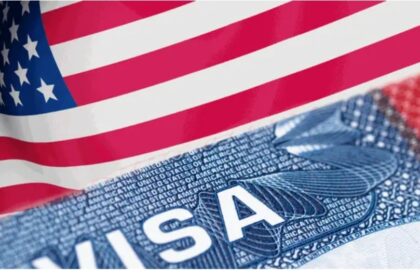A new measure to restructure Nigeria’s debt profile by borrowing more in dollars was announced yesterday.
Minister of Finance Kemi Adeosun told reporters at the end of the Federal Executive Council (FEC) meeting that the government will also refinance treasury bills.
She said: “The memo that I presented and approved by council is part of efforts to restructure our debt portfolio. We got an approval in June to restructure our debt profile; we will borrow less in naira and more in foreign currency because it’s cheaper and we want to prevent crowding out the private sector. We want to create room for the private sector so that they can borrow and create more jobs.
“So, as part of that ,we sought approval and that was granted for us to refinance treasury bills. We will finance treasury bills. As treasury bills mature,we will be financing them in dollars; up to $3 billion worth of treasury bills will be refinanced into dollars.
“As the naira treasury bills mature, we will be issuing dollar instrument. We are not increasing our borrowings; we are simply restructuring,instead of owing naira we will be owing dollars and the advantage to that one is cost reduction. The average rate we borrow internationally doesn’t exceed 7% . Our treasury bills were paying between 13.6 and 18.5.
“They are almost having the cost of borrowing. We are trying to relieve the pressure on debt services . As you know there are a lot of controversies that our debt, profile is very high and.one of the things we are trying to do to relieve is to refinance. The second thing to extend the maturity. All our treasury bills mature maximum 364 days. We will be taking that borrowing to three years and the expectation is that as the economy recovers and grows, we will be in a much better position to repay instead of rolling over the debt which we are doing at the moment.
“The third thing is that by reducing government borrowing to the tune of $3bn, we create more room for banks to lend to the private sector and hopefully that will also create some downward pressure on the interest rate.
“We want to borrow as much in naira and hopefully that will begin to put pressure on the interest rate which we will agree have to come down.So that was the approval that was given and that is part of our overall strategy which aims to reduce borrowing.”
Asked if issuing treasury bill in dollars won’t have adverse effects on the naira, Mrs. Adeosun said: “We are not issuing dollar denominating treasury bills (TBs). No. We are not? What we are doing is that the naira treasury bill, when it matures, we will then issue bonds in the capital market, international capital market. We are not issuing dollars’ TB at all – erratic dollar bonds.
“You will recall that when we went to the capital market about three times this year, our average cost of borrowing was longer than 7 per cent. But with treasury bills, we are paying up to 18 per cent. So, what we are doing is simply substituting the maturing naira debt with cheaper dollar denominating debt. We are not dollarising the economy.
“In terms of the impact on naira, it’s going to be positive because it means that $3 billion will be coming into our foreign reserve. It will actually increase our foreign reserves.
“We are not issuing treasury bills in dollars. Nigerian government doesn’t transact in dollars at all. We are not paying anybody in dollars. What we are simply doing is that as the Nigerian government treasury bills mature, we are now going to pay off by proceeds of dollar denominating bond, a three year-bond. Instead of the treasury bill of 91 to 364 days, we are taking short money and we refer them into the treasury bill because anytime we run out of cash to borrow with interest and we cannot pay back, we run to the capital market. It actually increases our debt.
“What we are saying is that in the long run because we are coming into recovery, we need a little bit more time to pay. Instead of saying we are paying back in 91 days, we say, ‘let’s be realistic, we need two to three years to pay off this money.’ So, we are taking dollar denominating long bond. It is cheaper than the naira loans and we refer them to the treasury bill. We are not dollarising our economy in any way.”
“Also, if you look at the debt profile, 80 per cent of them is in naira. That stretches a challenge to the economy. Because government borrows heavily, there is no room for the private sector to get loans. Also, there is no incentive for the bank to lend to the private sector.
“What we think we need to do to create jobs and get the economy moving is for private sector lending to be commenced from this $3 billion, but we will not take from the domestic market. Our strategy is to restructure our debt in the international market.
“When the National Assembly resumes, we need a resolution to do this. We borrow less because it is cheaper to pay back. It makes it cheaper and we refer them to the economy. So, we are taking dollar denominating bond which is cheaper and we refer them to the treasury bill,” the minister said.



